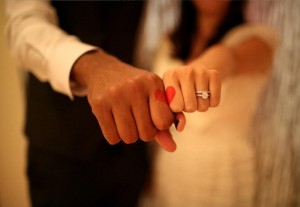Online Letter to Terry O’Neill
President, National Organization of Women
Dear Ms. O’Neill,
Every feminist thanks you for taking a stand against the brutal attack on 14 year old Pakistani Malala Yousafzai. Malala was targeted to be killed by the Swat Valley Taliban for her advocacy for education for girls. The Taliban took responsibility for the October 4 assault in which the assailant boarded a bus, called out for Malala by name and then shot her in the head. Malala did not die, and continues to improve in a hospital in London.
The Taliban has justified this cold-blooded attack, which you rightfully decry, citing the Quran, Shariah law and religious precedent:
“If anyone thinks that Malala was targeted because of education, that is absolutely wrong, and propaganda of media. Malala was targeted because of her pioneer role in preaching secularism and so called enlightened moderation. And whomsoever will commit so in future too will be targeted again” …It is “not just allowed … but obligatory in Islam” to kill such a person involved “in leading a campaign against Shariah and (who) tries to involve whole community in such campaign, and that personality becomes a symbol of anti-Shariah campaign.”
At the core of Malala’s objectionable “preaching,” lays her young love of education and her conviction that girls, like boys, have a right to attend school. Malala wanted to become a doctor – an ambition that evolved into an activism so that all girls would have the opportunity to become doctors. It was this activism – on behalf of the equality and dignity of all girls – that motivated the Taliban to silence Malala. It was this activism – in a culture where Malala’s own mother refused to be photographed because she is a woman – that motivated the Taliban to send a brutal, horrific message to all females who would seek their dignity and equality in spite of systemic oppression and discrimination based upon the condition of being female.
Malala’s bloodied body is the cruel reality of misogyny – the distrust, dislike and oppression of a person for the condition of being female. Every feminist joins you, Ms. O’Neill, and NOW in recognizing that “Throughout the world, countless young girls are robbed of their childhood through violence, forced marriage and lack of access to health care or education.” Whether these denials of basic human dignity to the female arise from religious beliefs, customs, or even by consent of females, depriving females of fundamental human liberties should give rise to objection from all feminists throughout the world. To ignore the violence and indignities encourages and condones a disdain for the autonomy and equality of the female. It is brave of you to take this stand when doing so might trigger violence against you, just as threats have been made against journalists who have dared to cover the story over objections of the Taliban.
In this we can join together, progressive feminists, new feminists and feminists of all waves. Physical attack, forced marriage, revenge attacks and genital mutilation – all of which occur with frightening frequency throughout the world – warrant our efforts to work together and demand education and legal parity for women.
As you note in your statement, these problems are not limited to particular countries or parts of the world. Our work can and should begin within our borders. NewFeminism.co encourages you and NOW to exercise your voice for the basic dignity of all females, that no female is denied her fundamental autonomy for the condition of being female. It is vital that those of us fighting and struggling for the dignity of our gender dialogue on the scope of degradation of the female – including females aborted due to sex selection, females used and degraded in pornography and prostitution, females reduced to indentured pregnancies, and females killed as “incidents” by drones and military strategies. If we do not insist that the condition of being female is never a justification for destruction and exploitation, that – in fact – the condition of being female is as worthy and equal to that of the male – then we will fall short of creating a world where the female can live with the same respect and dignity of the male.
That all too often it is women themselves perpetuating, encouraging and commercially profiting from the destruction, humiliation and exploitation of other females does not change the nature of misogyny. We must engage this struggle aware that violence and discrimination against women comes not only from highly visible misogynist men of radical groups like the Taliban, but from other women as well. Ayaan Hirsi Ali offers a startling account of the role of women in oppressing their own gender in her memoir Infidel and the chilling narrative of her genital mutilation and physical abuse.
Women themselves can think of femaleness with distrust, dislike and hostility, certain that men, maleness and masculine attributes and ambitions are superior to the female. Consider, for example, the widespread abortion of females for sex selection. This is destruction wrought by women against the female fetus because she is female. Commercialization of reproduction – fueled by demands from older, less fertile women – is creating a vast and lucrative industry that seeks to reduce the younger, fertile female body to a commodity, rivaling the dehumanizing and objectification that unchecked pornography has nearly normalized in a Western world shaped by male demand for sexual exploitative entertainment. In India, a reproductive industry flourishes off the indenture of impoverished women for nine months of paid, regulated, commercial pregnancy. In each of these instances, the female is subject of violence, discrimination and exploitation based upon the condition of being female, regardless the gender of her oppressor. Education is critical, as you assert, not only to empower girls, but also to give women the intellectual tools to break from traditional customs and modern cultural practices that offend and destroy the female.
We must not let politics or the pressures of commercial interests blind us to these forms of degradation and violence. To ignore any form of discrimination and violence nurtures and perpetuates a dangerous drift to denigrate the female – her body, her attributes and her autonomy – as inferior and less worthy of protection within a male paradigm. We must combine our resources to say “No” to all discrimination and oppression against the female. We must join efforts to say “Yes” to Malala’s dream for the education and life-long dignity of all females throughout the world. As you astutely ask, “If a 14-year-old girl can risk her life standing up to the Taliban, what actions can we take here in the U.S. to advance the rights of girls?” Creating dialogue and forging cooperation between feminists is a good place to start.
Sincerely,




 Each member of a family is looking at their own individuated screen, creating their own mini-reality. They are entirely disconnected from each other, save greetings in route to the bathroom or kitchen. The dark impact of this disconnection is most evident upon human sexuality, as individuals seek to practice and heighten sexual pleasure through virtual experience on a computer. Human sexuality is cut off from its full and proper good use, not by contraception, but by removal of all real, interactive contact. Through technology, people spend hours alone, seeking to heighten the pleasures of a sexual feeling and climax, without regard to their own personal dignity being noticed and embraced. Without such dignity, sex itself is lost. Baudrillard predicted this outcome in Forget Foucault:
Each member of a family is looking at their own individuated screen, creating their own mini-reality. They are entirely disconnected from each other, save greetings in route to the bathroom or kitchen. The dark impact of this disconnection is most evident upon human sexuality, as individuals seek to practice and heighten sexual pleasure through virtual experience on a computer. Human sexuality is cut off from its full and proper good use, not by contraception, but by removal of all real, interactive contact. Through technology, people spend hours alone, seeking to heighten the pleasures of a sexual feeling and climax, without regard to their own personal dignity being noticed and embraced. Without such dignity, sex itself is lost. Baudrillard predicted this outcome in Forget Foucault: